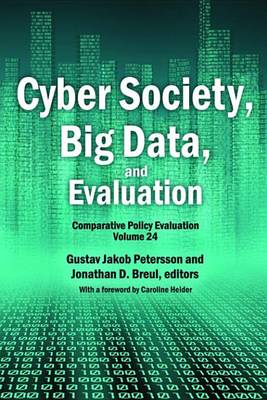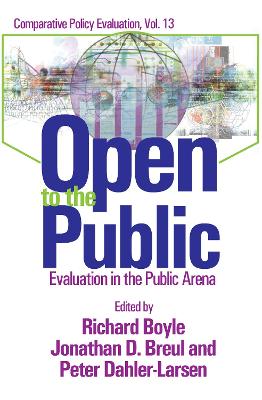Comparative Policy Evaluation
2 total works
We are living in a cyber society. Mobile devices, social media, the Internet, crime cameras, and other diverse sources can be pulled together to form massive datasets, known as big data, which make it possible to learn things we could not begin to comprehend otherwise. While private companies are using this macroscopic tool, policy-makers and evaluators have been slower to adopt big data to make and evaluate public policy. Cyber Society, Big Data, and Evaluation shows ways big data is now being used in policy evaluation and discusses how it will transform the role of evaluators in the future. Arguing that big data will play a permanent and growing role in policy evaluation, especially since results may be delivered almost in real time, the contributors declare that the evaluation community must rise to the challenge or risk being marginalized. This volume suggests that evaluators must redefine their tools in relation to big data, obtain competencies necessary to work with it, and collaborate with professionals already experienced in using big data. By adding evaluators' expertise, for example, in theory- driven evaluation, using repositories, making value judgements, and applying findings, policy-makers and evaluators can come to make better-informed decisions and policies.
Open to the Public grows out of concern with evaluation in the public arena and the struggle to understand how best to use the information it generates. Many concepts and models of evaluation, how to undertake it, and how to make it more useful, were developed before government performance became of so much interest to the public. In fact, it is arguable that recent changes in the forms, shapes, structures, and media through which the information developed in the process of evaluation becomes public, require new ways of thinking about its role in society.What is the role of evaluative information in the public arena today? How, when, and under what circumstances does the actual use of evaluative information take place, and what are the forces at play? By compiling and comparing international case studies, this book considers forces that make the information produced in evaluations increasing "open to the public." They provide insights into the many factors that influence evaluation and its use in the public arena. Their case studies include such current topics as: "spin doctoring" of information by the media and this practice's relationship to evaluation studies, the hotly debated issue of school performance, and information about it aired in the public arena, and the controversial link between budget processing and government performance.This book will be invaluable to those conducting evaluations, public employees and commissioners, and those studying public administration.

